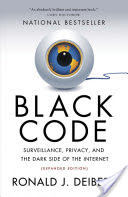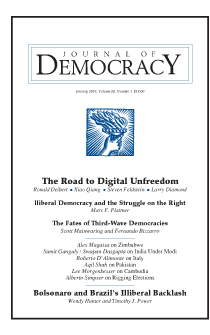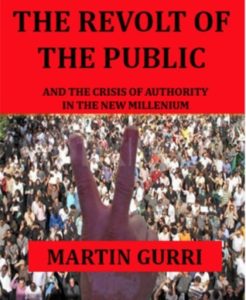 Facebook has entered a new era of cautious glasnost, inviting researchers to look ‘under the hood’ of various aspects of its operations, and understand how it formulates and implements its policies, notes a new report from Oxford and Stanford universities. The report aims to identify some specific issues concerning political information and speech on Facebook, providing an overview of the major changes that Facebook has made in recent years in response to public criticism, and critically assessing these changes.
Facebook has entered a new era of cautious glasnost, inviting researchers to look ‘under the hood’ of various aspects of its operations, and understand how it formulates and implements its policies, notes a new report from Oxford and Stanford universities. The report aims to identify some specific issues concerning political information and speech on Facebook, providing an overview of the major changes that Facebook has made in recent years in response to public criticism, and critically assessing these changes.
 Suggestions as to what more the company should do feature in GLASNOST! Nine ways Facebook can make itself a better forum for free speech and democracy, by Timothy Garton Ash, Robert Gorwa, and Danaë Metaxa:
Suggestions as to what more the company should do feature in GLASNOST! Nine ways Facebook can make itself a better forum for free speech and democracy, by Timothy Garton Ash, Robert Gorwa, and Danaë Metaxa:
- Tighten Community Standards wording on hate speech
- Hire more and contextually expert content reviewers
- Increase ‘decisional transparency’
- Expand and improve the appeals process
- Provide meaningful News Feed controls for users
- Expand context and fact-checking facilities
- Establish regular auditing mechanisms
- Create an external content policy advisory group
- Establish an external appeals body
Many observers have noted that entrenched authoritarian states, like Russia and China, have gotten very good at manipulating social media platforms to marginalize domestic dissidents and destabilize democracies abroad, notes VOX analyst Zack Beauchamp. What’s gotten less attention is how authoritarian factions inside democratic states benefit from the nature of modern social media platforms, he writes.
He cites the pretty grim conclusion of an essay from Ronald Deibert in the most recent issue of the NED’s Journal of Democracy – “one of the premier academic venues for analyzing the current state of democratic politics.”
 To restore liberal democracy, we will need a wholesale change in our way of life. That will obviously not be easy, nor will it happen overnight, Deibert contends:
To restore liberal democracy, we will need a wholesale change in our way of life. That will obviously not be easy, nor will it happen overnight, Deibert contends:
There will be enormous social, economic, and political forces pushing back against it. A comprehensive strategy of long-term reform is therefore required, extending from the personal to the political, from the local to the global. We must learn to treat our information environment in the same way that we hope to treat our natural environment—as something over which we exercise stewardship and toward which we behave in a spirit of caution and restraint. … Simultaneously, we must develop systems of public education with media literacy, ethics, civility, and tolerance at the foundation.
“The world is crying out for technological innovations that will open up other means of distributed communication beyond the highly centralized, intensely surveilled, and too easily abused platforms of the social-media giants,” adds Deibert, director of the University of Toronto’s Citizen Lab and author of Black Code: Surveillance, Privacy, and the Dark Side of the Internet. “The goal should be to preserve the great strides we have made in connecting people to one another and letting them access vast stores of information quickly from anywhere on the planet, but without steering them toward the indulgence of their basest instincts.”
 Today’s autocracies are different from those of the fascist parties in Italy or Germany of the early and mid-20th century. They demand acquiescence more than enthusiastic participation. They are manipulative more than incontinently brutal, the FT’s Martin Wolf adds:
Today’s autocracies are different from those of the fascist parties in Italy or Germany of the early and mid-20th century. They demand acquiescence more than enthusiastic participation. They are manipulative more than incontinently brutal, the FT’s Martin Wolf adds:
As Martin Gurri suggests in The Revolt of the Public and the Crisis of Authority in the New Millennium, this shift is partly connected to the fall of the old mass media. The new media are far less good at disseminating a single propaganda message than the old ones were. But they are magnificent at spreading doubt. By destroying the authority of experts, elites and “old media”, new media open the way to political entrepreneurs gifted at exploiting resentments and undermining the notion of truth.
“Democracy lacks true rivals as an ideology or system of government. That is not enough,” Gurri contends. “There is a decadence in certain historical moments, an entropy of systems, that makes no demand for alternative ideals or structures before the onset of disintegration.”
Technology has categorically reversed the information balance of power between the public and the elites who manage the great hierarchical institutions of the industrial age—government, political parties, the media, Gurri argues. He questions whether current elites can bring about a reformation of the democratic process, and whether new organizing principles, adapted to a digital world, can arise out of the present political turbulence.







